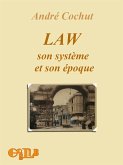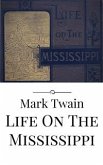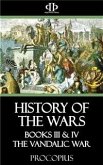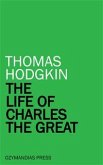England’s Holy War tells the story of the compromises of conscience and self-fuelled illusions by British Liberal opinion as it was reflected in the newspapers that represented it during the First World War, in particular the Daily News and the Manchester Guardian, and is a first rate contribution to the problem of consent to the Great War, the immense and generalized consent that for various reasons the politically literate population of the whole of Europe gave their country’s participation in the war. The discussion vividly reveals the state of consciousness, throughout the war, of the Liberal half of England forced to comply with a war that contradicted all the principles for which it had committed itself until on the day of England’s involvement.
In this context, on August 3, 1914, the Liberal press was still looking for the coherence of things within the framework of its vision: the German invasion of Luxembourg was an understandable tactical move given the threat impending on Germany from East and West, on which the Manchester Guardian wrote “we deeply regret it but we understand” (p. 58). On August 6, after the war was declared, the Manchester Guardian repeated again that everything was a mistake, but added “Being in, we must win”, which would be the formula that would accompany England for the whole duration of the war.
From now on the war became holy, the war that would bring democracy and the transparency of democratic methods in the world, “the war to end war”, and this idealistic motivation claim would accompany the Liberals for all subsequent events while remaining tolerated by conservatives, although they would never make it their own. The great prophet of this Gospel was the socialist and utopian writer H. G. Wells, who began on August 7 a constant work of defamation of Germany under the banner of the “sword of peace”. With this leitmotif, i.e. attention to the stratagems of English Liberals to justify their actions against their principles, the book tells the whole war, and in particular the refusal of the negotiated peace that would have been possible in 1917 and the ignoble chapter of the armistice, the vengeful blockade on Germany and the punitive peace treaties. England’s Holy War is a first rate study in national psychology and a narrative of the war by a Liberal pacifist who remained consistent with the original ideas, and not willing to compromise.
In this context, on August 3, 1914, the Liberal press was still looking for the coherence of things within the framework of its vision: the German invasion of Luxembourg was an understandable tactical move given the threat impending on Germany from East and West, on which the Manchester Guardian wrote “we deeply regret it but we understand” (p. 58). On August 6, after the war was declared, the Manchester Guardian repeated again that everything was a mistake, but added “Being in, we must win”, which would be the formula that would accompany England for the whole duration of the war.
From now on the war became holy, the war that would bring democracy and the transparency of democratic methods in the world, “the war to end war”, and this idealistic motivation claim would accompany the Liberals for all subsequent events while remaining tolerated by conservatives, although they would never make it their own. The great prophet of this Gospel was the socialist and utopian writer H. G. Wells, who began on August 7 a constant work of defamation of Germany under the banner of the “sword of peace”. With this leitmotif, i.e. attention to the stratagems of English Liberals to justify their actions against their principles, the book tells the whole war, and in particular the refusal of the negotiated peace that would have been possible in 1917 and the ignoble chapter of the armistice, the vengeful blockade on Germany and the punitive peace treaties. England’s Holy War is a first rate study in national psychology and a narrative of the war by a Liberal pacifist who remained consistent with the original ideas, and not willing to compromise.









